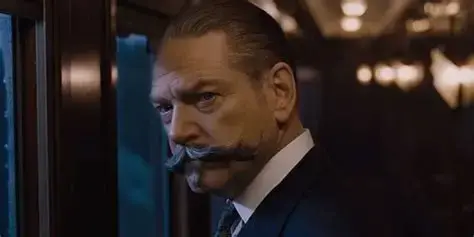Dead Again (1991)
- Soames Inscker

- Jul 23, 2025
- 4 min read

Kenneth Branagh's Dead Again is a stylish, twist-laden neo-noir thriller that doubles as a Gothic romance, drawing on classic Hollywood influences while showcasing Branagh’s flair for ambitious storytelling. Combining reincarnation, murder, mistaken identity, and fate, the film straddles genres and eras, delivering a visually arresting and emotionally satisfying mystery that feels both old-fashioned and fresh.
Plot Summary
Dead Again begins in contemporary Los Angeles, where a private detective named Mike Church (Kenneth Branagh) is called to investigate the case of a mysterious woman (Emma Thompson) suffering from amnesia. She speaks not a word, is plagued by night terrors, and has no recollection of who she is or how she ended up at a convent.
Through a hypnotist (Derek Jacobi), she begins to recall memories that seem to belong to another woman—Margaret Strauss, a celebrated concert pianist who, in 1949, was brutally murdered by her composer husband Roman Strauss (also played by Branagh), a man who was executed for the crime. As the investigation unfolds, Church and the woman—dubbed "Grace"—uncover shocking parallels between the past and the present, suggesting that they may be reincarnations of the ill-fated Strauss couple. The mystery deepens, and past sins threaten to repeat themselves.
Direction and Style
Branagh, known primarily for his Shakespearean work prior to this film, takes a sharp turn into Hitchcockian territory. Dead Again wears its influences on its sleeve—from Rebecca and Vertigo to Spellbound and Double Indemnity. The film is drenched in noir atmosphere, rich with sweeping camera movements, dramatic lighting, and thunderous music. Branagh demonstrates an impressive command of genre and tone, balancing suspense, romance, and supernatural intrigue with flair.
The film toggles between past and present, cleverly using black-and-white for the 1940s storyline and colour for the modern setting. This visual juxtaposition adds texture and contrast, evoking classic Hollywood while keeping the contemporary plot grounded.
Performances

Kenneth Branagh excels in dual roles as both the sensitive, streetwise Mike Church and the haunted, aristocratic Roman Strauss. He brings different rhythms, accents, and physicality to each role, showcasing his range and theatrical sensibility.
Emma Thompson, also in two roles (Grace and Margaret), matches Branagh beat for beat. Her transformation—from a mute, terrified amnesiac to a poised, passionate woman uncovering her past—is graceful and emotionally affecting. She lends warmth and intelligence to a character who might otherwise be overwhelmed by the plot’s twists.
Derek Jacobi is excellent as the hypnotist Franklyn Madson, whose dry wit and quietly intense presence provide much-needed balance to the escalating drama. His readings of past-life regressions are some of the film’s most compelling scenes.
Andy Garcia makes a strong impression in a small but pivotal role as a hard-boiled journalist with a key to the mystery.
Robin Williams, in an uncredited but standout performance as a disgraced psychologist working in a grocery store, provides moments of levity and philosophical musings. His darkly comedic commentary on relationships and reincarnation adds thematic weight to the film.
Themes and Tone
At its core, Dead Again is a meditation on love, betrayal, and the possibility of destiny. The idea that the sins of the past can echo into the present is woven throughout the film. Branagh invites us to consider whether we’re bound to repeat the mistakes of our previous lives or whether we have the power to break the cycle.
The romantic throughline—especially the tortured love between Roman and Margaret—adds poignancy to the suspense. The film doesn’t just want to thrill; it wants to move its audience. And it largely succeeds.
The tone oscillates between operatic drama and noir cynicism. At times, the film risks veering into melodrama, but Branagh’s controlled direction and the cast’s conviction keep it grounded. The blend of genres—romantic mystery, psychological thriller, even touches of gothic horror—makes Dead Again feel distinctive.
Cinematography and Score
Matthew F. Leonetti’s cinematography is a standout. The black-and-white sequences are gorgeously stylised, evoking 1940s cinema with chiaroscuro shadows and elegant framing. The colour scenes contrast this with a cooler, more modern palette, but still retain a moody aesthetic. The film is full of memorable visuals: a pair of ornate scissors, a swirling staircase, a haunting chapel—images that heighten the mythic quality of the story.
Patrick Doyle’s lush orchestral score adds urgency and emotional depth, seamlessly shifting between romance and suspense. The music underscores the film’s operatic ambitions and gives it a timeless, classical feel.
Critique
While Dead Again is undeniably entertaining, it isn’t without flaws. The plot, while cleverly constructed, can sometimes feel overwrought or implausible, particularly in the third act when revelations come thick and fast. There’s a certain theatricality to the dialogue and performances that might not appeal to all tastes—it’s stylised rather than naturalistic.
Keanu Reeves’ much-maligned performance in Much Ado About Nothing is not repeated here—largely because he's not in the film—but some viewers might feel Branagh himself leans into melodrama at times. Still, these are minor quibbles in an otherwise finely crafted thriller.
Conclusion
Dead Again is a bold, stylish, and passionate film that pays homage to classic noir and psychological thrillers while establishing Kenneth Branagh as a director unafraid to take risks. With stellar performances from Branagh and Thompson, an engaging mystery, and an evocative sense of atmosphere, it remains an underrated gem of 1990s cinema.
It’s a film that rewards attention and embraces emotion—an intelligent thriller that believes in love as much as it does in murder and mystery.
Rating:
A gripping, elegant noir-tinged mystery with gothic flair—Dead Again is a haunting, romantic thriller that stands the test of time.





